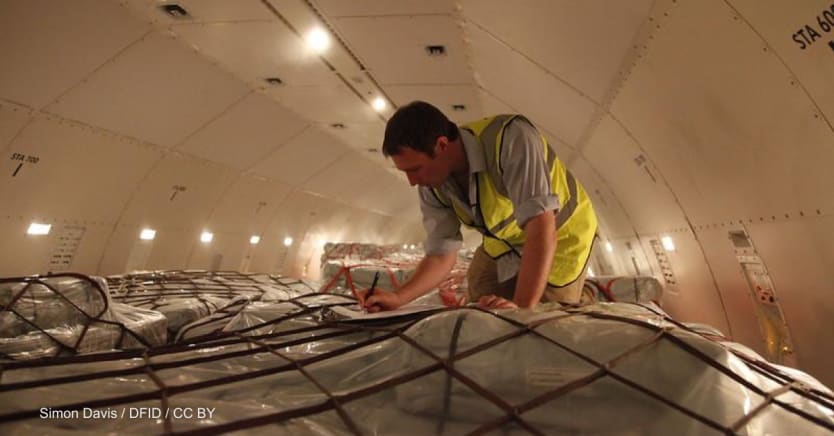
A battered British development sector surveyed the damage Wednesday after the United Kingdom’s Parliament passed a motion that effectively placed the 0.7% foreign aid target out of reach indefinitely.
The sector suffered another decisive defeat at the hands of a government that had already closed the Department for International Development and “temporarily” reduced the hard-won target of spending 0.7% of gross national income on aid to 0.5%, leaving a £4 billion hole in the budget.
Economists have said the 0.7% target is now out of reach for at least the next four to five years, by which time an election is due, and potentially much longer because of the tough fiscal conditions — dubbed the “double lock” — that Chancellor Rishi Sunak applied on any possible future return to 0.7%.
Though there has been scant time for reflection or thinking about what the sector should do next, Devex spoke with senior figures to hear their initial thoughts on its most jarring blow yet.
“I’m taking a second to mourn and grieve for the 100,000 lives that will be lost that didn’t need to be,” said Aaron Oxley, executive director at RESULTS UK, in reference to the sector’s estimates of how many people could die because of the cuts.
“If we don’t give ourselves a moment to truly appreciate the horror of what just happened, if we act out of emotions generated solely by that, we risk not doing our best work in addressing that,” Oxley said.
He added: “We’re certainly not stopping. We’re looking to the [0.7% legal] statute. … The [2015 International Development] Act is not repealed; the fight will go on. What form it will take and how we’ll do that, I’m not clear at the moment.”
“It’s not the final word on this matter,” said Richard Darlington, campaign director at the Campaign to Defend Aid and Development, an organization representing NGOs that liaised with the rebel Conservative members of Parliament on the aid cuts issue. He said his organization would “do some reflection and evaluation” before deciding on next steps. “I don’t think the campaign is any less needed today than yesterday,” he said.
The sector’s attempt to take stock of the cuts could be a learning opportunity, according to Lorriann Robinson, director at The Advocacy Team.
“Crucially, I think this should be an open and inclusive process bringing in ideas and lessons from as many people as possible,” she said.
“The only certainty is 0.7[%] is gone until the next election,” said Alastair Russell, interim head of public affairs at Save the Children UK, noting the impact was already being felt around the world. Save the Children expects budget cuts to continue into 2022, he added.
Russell said the vote was a reminder of the “critically important” nature of the “long-term work of engaging the public and politicians on the impact of U.K. aid.” He added: “We need to keep making the case and talking in practical terms about damage being done and the impact remaining aid continues to make, so next time there is an opportunity, there are more people who are persuaded of the case and have that information.”
Romilly Greenhill, U.K. director at the ONE Campaign, identified two priorities for her organization, now that their short-term hope of returning to the 0.7% target is diminished. One was to have a “deeper” public conversation about aid and development, particularly with “middle England,” to rebuild public and political support. She also said it was time to be “ruthless” about the quality of aid spending, now that “old excuses” — which saw few complaints about how aid was spent when the budget was rising — no longer apply.
Greenhill also said that she would “keep pushing” for a return to the 0.7% target.
Stephanie Draper, chief executive at Bond, the U.K. network for NGOs, said that time was needed to “take stock” and that the organization’s immediate response would be “to have a rethink about what comes next.”
“If we don’t give ourselves a moment to truly appreciate the horror of what just happened ... we risk not doing our best work in addressing that.”
— Aaron Oxley, executive director, RESULTS UKBut “we also have some very immediate things to focus on,” Draper added. The first was the Foreign, Commonwealth & Development Office’s new international development strategy. “The first draft is out at the end of July. That's going to dictate how 0.5[% aid budget] is spent; that's even more important now because the budget is smaller. The focus on aid quality has to be sustained,” Draper said.
The second key priority is the United Nations’ 26th Climate Change Conference of the Parties, which is being held in Scotland in November. Alok Sharma, the U.K. president for COP 26 who is charged with leading the negotiations, voted against a return to 0.7% aid spending in Tuesday’s vote.
Draper said of COP 26: “The implications are looking bleak because of the budget cuts and diplomatic fallout from that. If we don’t get results at COP[26], the climate emergency is going to have severe implications for all our organizations [working on international development].”
Tuesday’s loss for the sector “doesn’t change that and [the] need to keep moving on those things,” Draper added.








